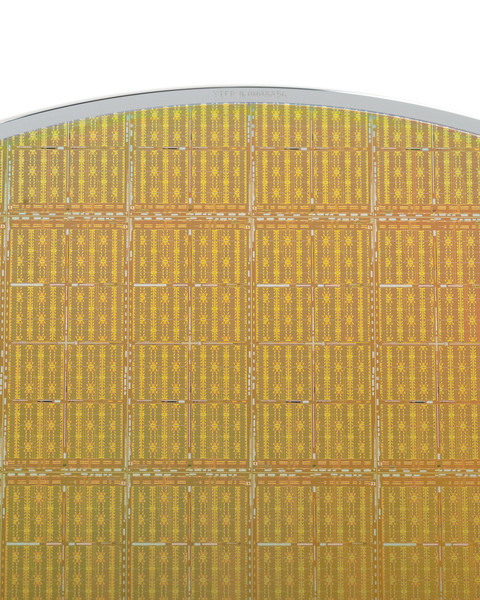April 28, 2025
As demand grows for more powerful and efficient microelectronics systems, industry is turning to 3D integration — stacking chips on top of each other. This vertically layered architecture could allow high-performance processors, like those used for artificial intelligence, to be packaged closely with other highly specialized chips for communication or imaging. But technologists everywhere face a major challenge: how to prevent these stacks from overheating.
Now, MIT Lincoln Laboratory has developed a specialized chip to test and validate cooling solutions for packaged chip stacks. The chip dissipates extremely high power, mimicking high-performance logic chips, to generate heat through the silicon layer and in localized hot spots. Then, as cooling technologies are applied to the packaged stack, the chip measures temperature changes. When sandwiched in a stack, the chip will allow researchers to study how heat moves through stack layers and benchmark progress in keeping them cool.
Complete article from MIT News.
Explore
MIT Engineers Advance Toward a Fault-tolerant Quantum Computer
Adam Zewe | MIT News
Researchers achieved a type of coupling between artificial atoms and photons that could enable readout and processing of quantum information in a few nanoseconds.
Analog Compute-in-Memory Accelerators for Deep Learning
Wednesday, April 30, 2025 | 12:00 - 1:00pm ET
Hybrid
Zoom & MIT Campus
Device enables direct communication among multiple quantum processors
Adam Zewe | MIT News
MIT researchers developed a photon-shuttling “interconnect” that can facilitate remote entanglement, a key step toward a practical quantum computer.




